The original source of energy in most ecosystems
The sun
What organisms complete aerobic cellular respiration?
both plants and animals (all eukaryotes)
What is another word for producer and what does it mean (prefix/suffix explanation)?
autotroph:
auto = self troph = feeding
Is fermentation an aerobic or anaerobic process?
Anaerobic
What 3 organisms do photosynthesis?
algae, some bacteria, and plants
This organelle uses light energy to produce glucose (via photosynthesis)
chloroplast
What other molecule is created during cellular respiration?
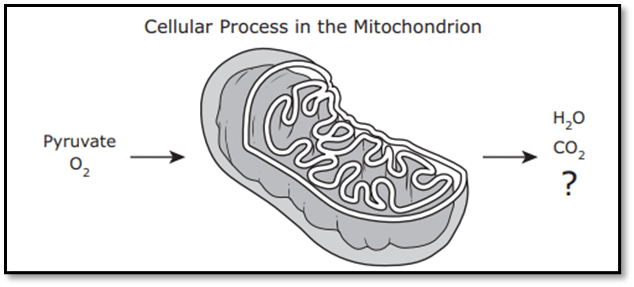
ATP
List the four types of heterotrophs.
carnivore, herbivore, omnivore, and detritivore
During photosynthesis, different gases move in and out of plant cells.
What gas moves in, and what gas moves out?
Carbon dioxide moves in; oxygen moves out
What is the process that breaks down food molecules to release energy in the form of ATP?
cellular respiration
What is the name for a stack of thylakoids?
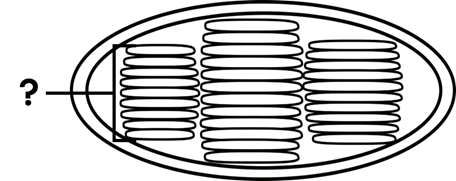
grana
List the 3 steps of cellular respiration.
Glycolysis, Krebs cycle, and Electron Transport Chain
Why is a pyramid shape used to represent energy and biomass within an ecosystem?
It represents the idea that as you move up the pyramid, the number of organisms and energy the organism obtains decreases.
Identify A and B in the image below.
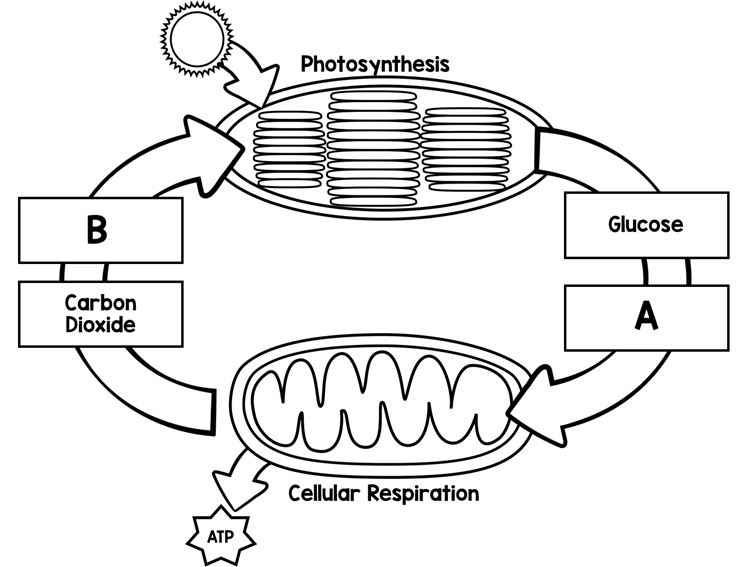
A: Oxygen
B: Water
Which step of cellular respiration takes place in the cytoplasm?
glycolysis
Why is chlorophyll important for plants?
Chlorophyll is a green pigment that captures solar energy
List each step of cellular respiration along with how many ATP are produced.
glycolysis - 2 ATP
Krebs cycle - 2 ATP
Electron transport chain ~32-34 ATP
Using this food web, list 2 food chains arranged according to energy flow.
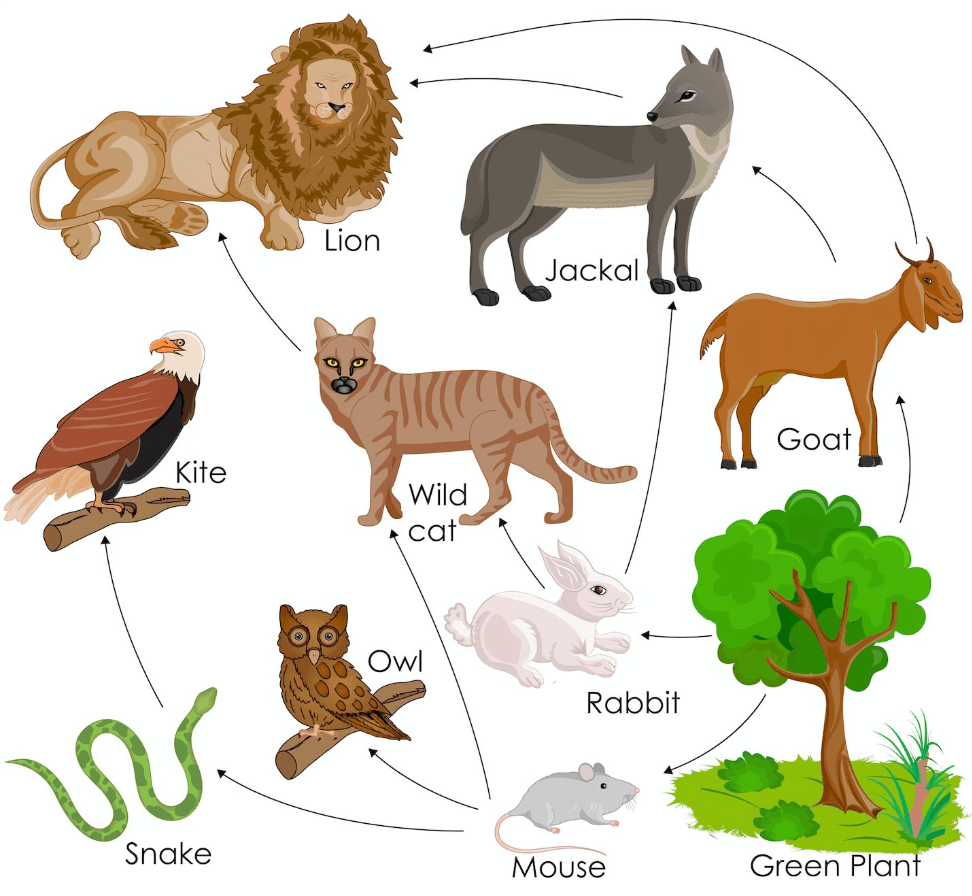
Answers will vary
The burning you feel in your muscles when exercising is a result of what?
Lactic acid (from lactic acid fermentation)
What gas is needed for cells to produce the most energy?
oxygen
Glucose is made during the second step of photosynthesis which takes place in the stroma of chloroplasts.
What is the name for this second step?
During the heart rate lab in Biology class, Degan notices that both his heart rate AND his breathing rate increase substantially during and shortly after strenuous exercise.
Why does our heart rate and breathing rate increase during exercise?
Our cells are using energy at a high rate and therefore require increased oxygen.
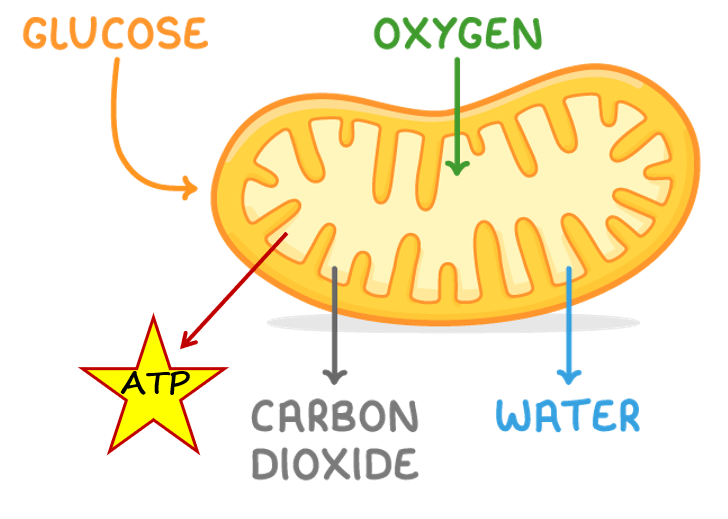
Suppose the green plants in this food web contains 25,300 kCal of energy. How much energy will the quarternary consumer receive?
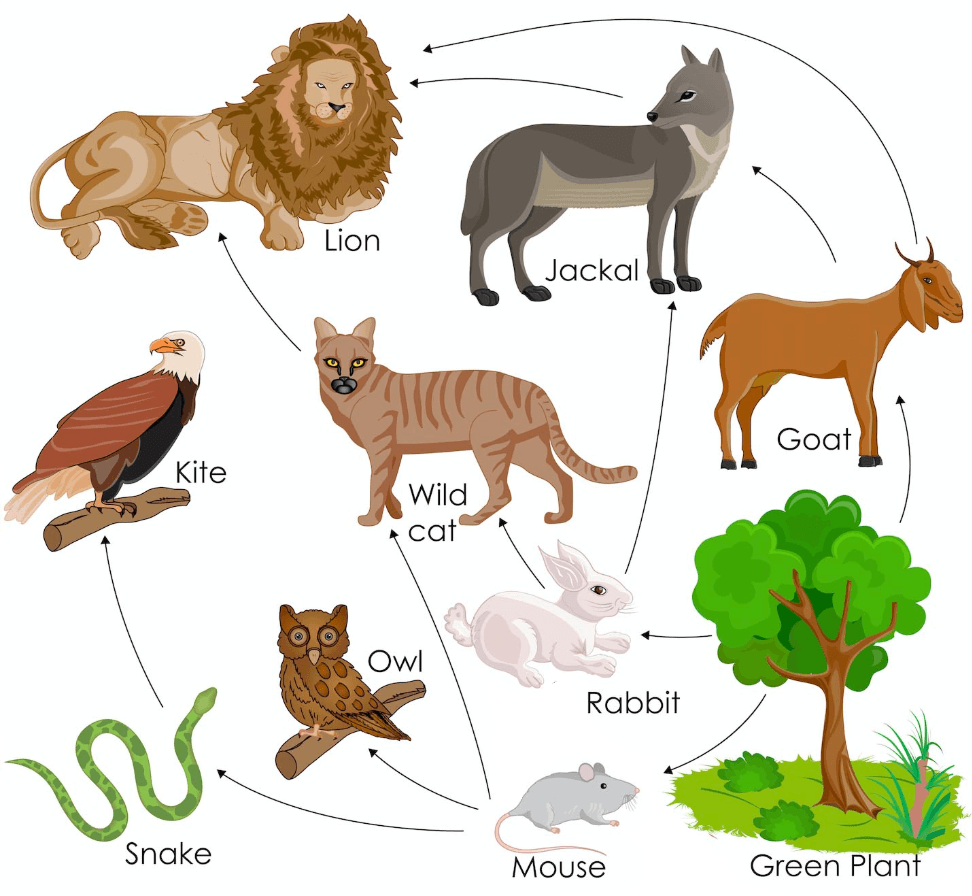
2.53 kCal
During the light-dependent reactions, sunlight is absorbed. Where in the chloroplast does this occur?
thylakoid membrane
Every time the cell uses energy, ADP is created. How does this happen?
ATP loses a phosphate
What is the BALANCED chemical equation for photosynthesis?

What is BALANCED chemical equation for cellular respiration?

What can be said about this ecosystem?
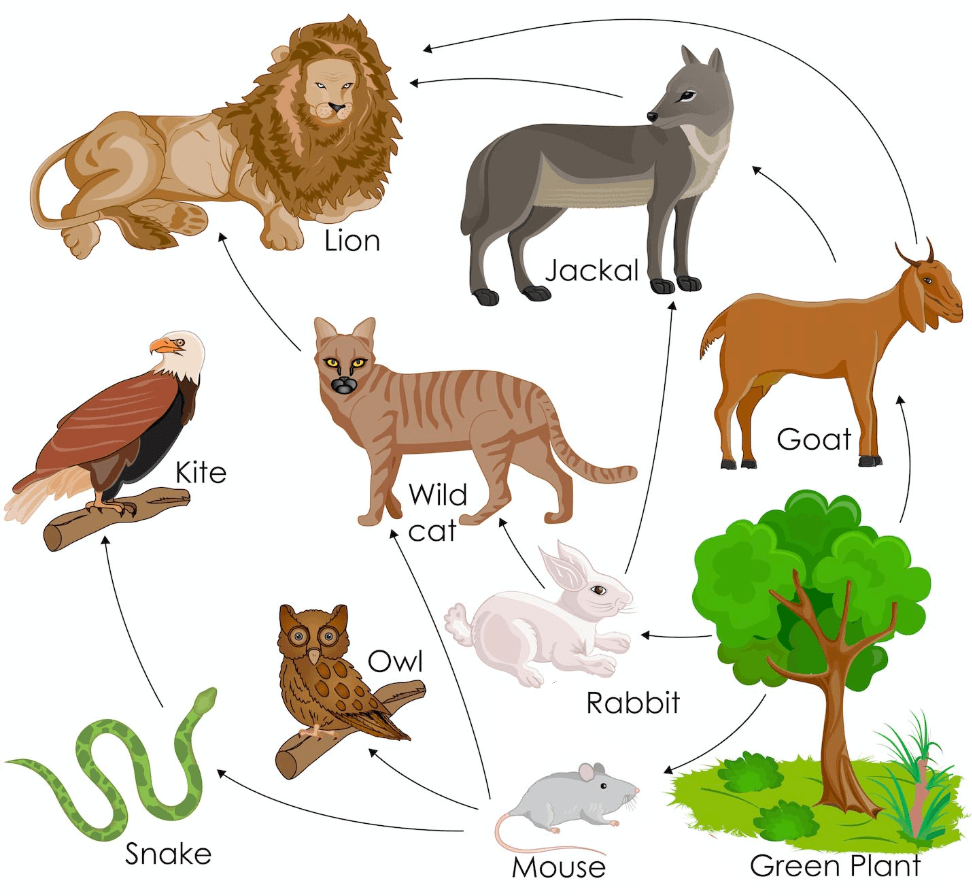
a. There are more lions than mice
b. There are more rabbits than lions
c. There are fewer mice than jackals
d. There are fewer plants than wild cats
b. There are more rabbits than lions
Explain why plants must use photosynthesis AND cellular respiration in order to survive.
They do photosynthesis to make the food (glucose) and cellular respiration to convert the food into USABLE energy in the form of ATP.
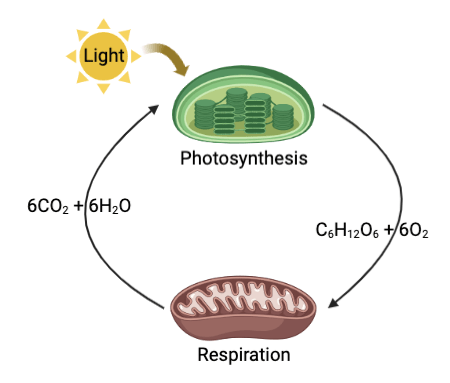
According to the law of conservation of matter, matter is not created or destroyed. BUT in an energy pyramid, the amount of biomass decreases as we move up the pyramid. Why?
Matter changes to heat energy and is no longer part of the food chain.